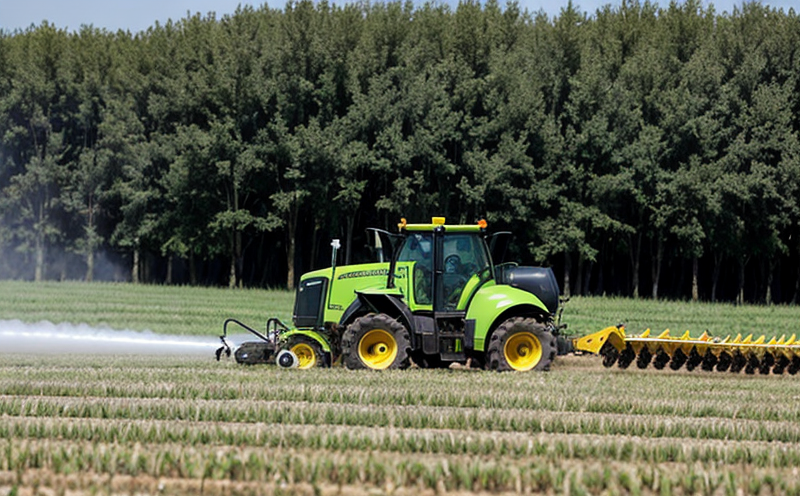Mecoprop (MCPP) Residue Testing in Crops
The herbicide Mecoprop, also known as 2-methyl-4-chlorophenoxypropionic acid or simply MCPP, is widely used for weed control. It belongs to the phenoxy acid class of herbicides and functions by inhibiting plant growth through photosynthesis disruption. However, its usage can lead to residues in crops that may affect food safety and environmental health.
Given the critical importance of ensuring safe agricultural produce, residue testing is a crucial step in quality control and compliance with international standards such as ISO 18072:2015 or EU regulation (EC) No 396/2005. This service focuses on detecting Mecoprop residues in various crops to ensure they meet safety thresholds.
In this testing process, the laboratory employs advanced analytical techniques such as Liquid Chromatography-Mass Spectrometry (LC-MS). The procedure involves several stages: sample collection from the field or storage area, extraction of Mecoprop using appropriate solvents like acetonitrile, and subsequent purification. After thorough preparation, the extract undergoes LC-MS analysis to identify and quantify Mecoprop residues.
The acceptance criteria are stringent, ensuring that any detectable levels of Mecoprop do not exceed permitted limits set by regulatory bodies. This service supports quality managers, compliance officers, R&D engineers, and procurement teams in meeting these standards effectively.
Real-world application includes regular testing to monitor the effectiveness of weed control programs while maintaining crop safety. The results from this testing can influence decisions on pesticide usage, enhance food safety protocols, and contribute to sustainable agricultural practices.
- Sample Collection: Proper sampling techniques are critical for accurate residue detection.
- Extraction: Efficient extraction methods ensure complete removal of Mecoprop residues from the sample matrix.
The laboratory adheres to rigorous quality assurance measures, utilizing certified reference materials and method validation studies. This ensures that all results are reliable and reproducible, meeting the highest standards in the industry.
Industry Applications
Mecoprop residue testing plays a vital role across multiple sectors within agriculture and forestry:
- Corn Production: Ensures that corn harvested after MCPP application meets safety standards for human consumption.
- Soybean Cultivation: Prevents soybeans from being contaminated by excess Mecoprop residues, ensuring food safety.
- Fruit Orchards: Protects fruit crops from contamination, maintaining the integrity of organic and conventional markets.
The testing process is not only essential for compliance but also supports sustainable agricultural practices. By detecting and managing Mecoprop residues, farmers can enhance crop quality and maintain market access while adhering to regulatory requirements.
Quality and Reliability Assurance
The laboratory places a strong emphasis on maintaining high standards of quality and reliability in all its testing services. This commitment is reflected in the use of advanced instrumentation, rigorous calibration procedures, and adherence to international standards such as ISO 18072:2015.
Our team of experts ensures that every sample undergoes thorough preparation and analysis, ensuring accurate results. Regular method validation studies further enhance reliability by confirming the precision and accuracy of our tests. This approach guarantees that clients receive reliable data they can trust for decision-making purposes.
Customer Impact and Satisfaction
Clients who utilize Mecoprop residue testing benefit significantly from this service:
- Enhanced Food Safety: Ensures that crops are safe for human consumption, contributing to public health.
- Regulatory Compliance: Helps clients meet stringent regulatory requirements, avoiding legal and financial penalties.
- Sustainable Practices: Supports the implementation of sustainable agricultural practices by providing insights into residue levels.
Our focus on quality, reliability, and customer satisfaction has earned us a reputation for excellence. Clients appreciate our expertise and commitment to delivering accurate, timely results that meet their specific needs.





